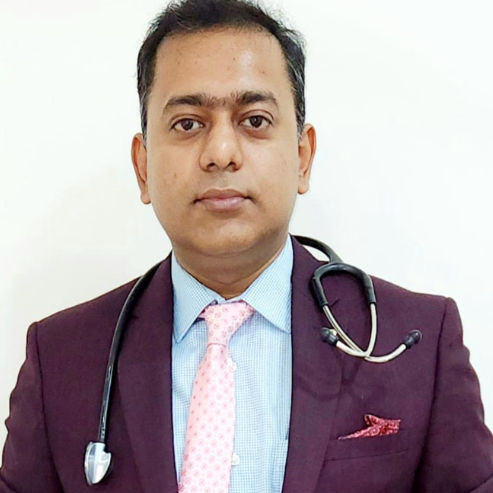Salivary Gland Cancer Symptoms Explained
Learn about salivary gland cancer symptoms, causes, diagnosis, and treatment options. Early detection is key—recognize the warning signs and know when to seek expert care.


Salivary gland cancer is a rare type of cancer that develops in the glands responsible for producing saliva. While it may not be as common as other cancers, understanding its symptoms, causes, and treatment options is crucial for early detection and better outcomes. If you or a loved one is experiencing unusual symptoms related to the mouth, jaw, or neck, this guide will help you recognise potential warning signs and take the right steps toward care.
What Are Salivary Glands?
Salivary glands produce saliva, which helps with digestion, keeps your mouth moist, and protects your teeth from decay. There are three major pairs of salivary glands:
1. Parotid glands (located in front of the ears): Most salivary gland cancers start here.
2. Submandibular glands (under the jawbone): Less commonly affected.
3. Sublingual glands (under the tongue): Rarely develop cancer.
Smaller salivary glands are also present in the lips, cheeks, and throat.
Common Symptoms of Salivary Gland Cancer
Salivary gland cancer symptoms can vary depending on the gland affected and the stage of cancer. Some key signs to watch for include:
1. A Lump or Swelling
A painless or painful lump in the cheek, jaw, mouth, or neck.
The lump may grow slowly or rapidly.
2. Numbness or Weakness in the Face
If the tumour presses on facial nerves, it may cause numbness, tingling, or muscle weakness (especially on one side of the face).
3. Difficulty Swallowing or Opening the Mouth
A tumour in the salivary glands can make it hard to swallow or fully open the mouth.
4. Persistent Pain
Pain in the face, mouth, jaw, or ear that doesn’t go away.
5. Fluid Drainage from the Ear
If the cancer affects the parotid gland, it may cause fluid leakage from the ear.
6. Changes in Saliva Production
Unusual dryness in the mouth or excessive saliva.
Blood in the saliva.
If you notice any of these symptoms lasting more than two weeks, consult a doctor for further evaluation.
Consult Top Specialists
What Causes Salivary Gland Cancer?
The exact cause is unknown, but certain risk factors may increase the likelihood:
Radiation exposure (previous head/neck radiation therapy).
Age (more common in older adults).
Certain workplace exposures (e.g., asbestos, rubber manufacturing).
Family history (rarely).
How Is Salivary Gland Cancer Diagnosed?
If your doctor suspects salivary gland cancer, they may recommend:
Physical examination (checking for lumps or swelling).
Imaging tests (CT scan, MRI, or ultrasound).
Biopsy (removing a small tissue sample for testing).
Early diagnosis improves treatment success, so don’t ignore persistent symptoms.
Treatment Options
Treatment depends on the cancer’s type, size, and stage. Common approaches include:
Surgery: Removing the tumour and possibly nearby lymph nodes.
Radiation therapy: Used after surgery or if surgery isn’t an option.
Chemotherapy: Rarely used unless cancer has spread.
Lifestyle Tips for Managing Symptoms
While medical treatment is essential, these tips can help improve comfort:
Maintain oral hygiene: Brush gently, use alcohol-free mouthwash, and stay hydrated.
Eat soft foods: If swallowing is difficult, opt for soups, smoothies, and mashed foods.
Avoid smoking and alcohol: These can worsen symptoms and delay healing.
Stay active: Gentle exercises can help maintain strength and well-being.
When to See a Doctor
If you experience:
A persistent lump in the face, neck, or mouth.
Unexplained facial pain or numbness.
Difficulty swallowing or speaking.
Don’t wait, early detection saves lives.
Need Expert Advice?
If you’re concerned about salivary gland cancer symptoms, Apollo 24|7 offers easy online consultations with experienced specialists. Book an appointment today for personalised care and peace of mind.
Conclusion
Salivary gland cancer, though rare, can be serious if left untreated. Recognising early symptoms like lumps, facial numbness, or difficulty swallowing is essential for timely diagnosis and better outcomes. If symptoms persist, consult a specialist without delay. Early action can make all the difference.
Consult Top Specialists
Consult Top Specialists

Dr Sunita Samleti
Oncologist
18 Years • M.D. (Pathology)- TN Medical College, Mumbai University, Mumbai, Mar 2005 M.B.B.S. Grant Medical College, Mumbai University, Mumbai, Oct 1999
Chinagadila
Apollo Hospitals Health City Unit, Chinagadila

Dr Gowshikk Rajkumar
Oncologist
10 Years • MBBS, DMRT, DNB in Radiation oncology
Bengaluru
Apollo Clinic, JP nagar, Bengaluru

Dr. Sanchayan Mandal
Oncologist
17 Years • MBBS, DNB Raditherapy, DrNB Medical Oncology
East Midnapore
VIVEKANANDA SEBA SADAN, East Midnapore

Dr.sanchayan Mandal
Oncologist
17 Years • MBBS, DrNB( MEDICAL ONCOLOGY), DNB (RADIOTHERAPY),ECMO. PDCR. ASCO
Kolkata
Dr. Sanchayan Mandal Oncology Clinic, Kolkata

Dr. Gopal Kumar
Head, Neck and Thyroid Cancer Surgeon
15 Years • MBBS, MS , FARHNS ( Seoul, South Korea ), FGOLF ( MSKCC, New York )
Delhi
Apollo Hospitals Indraprastha, Delhi
(25+ Patients)